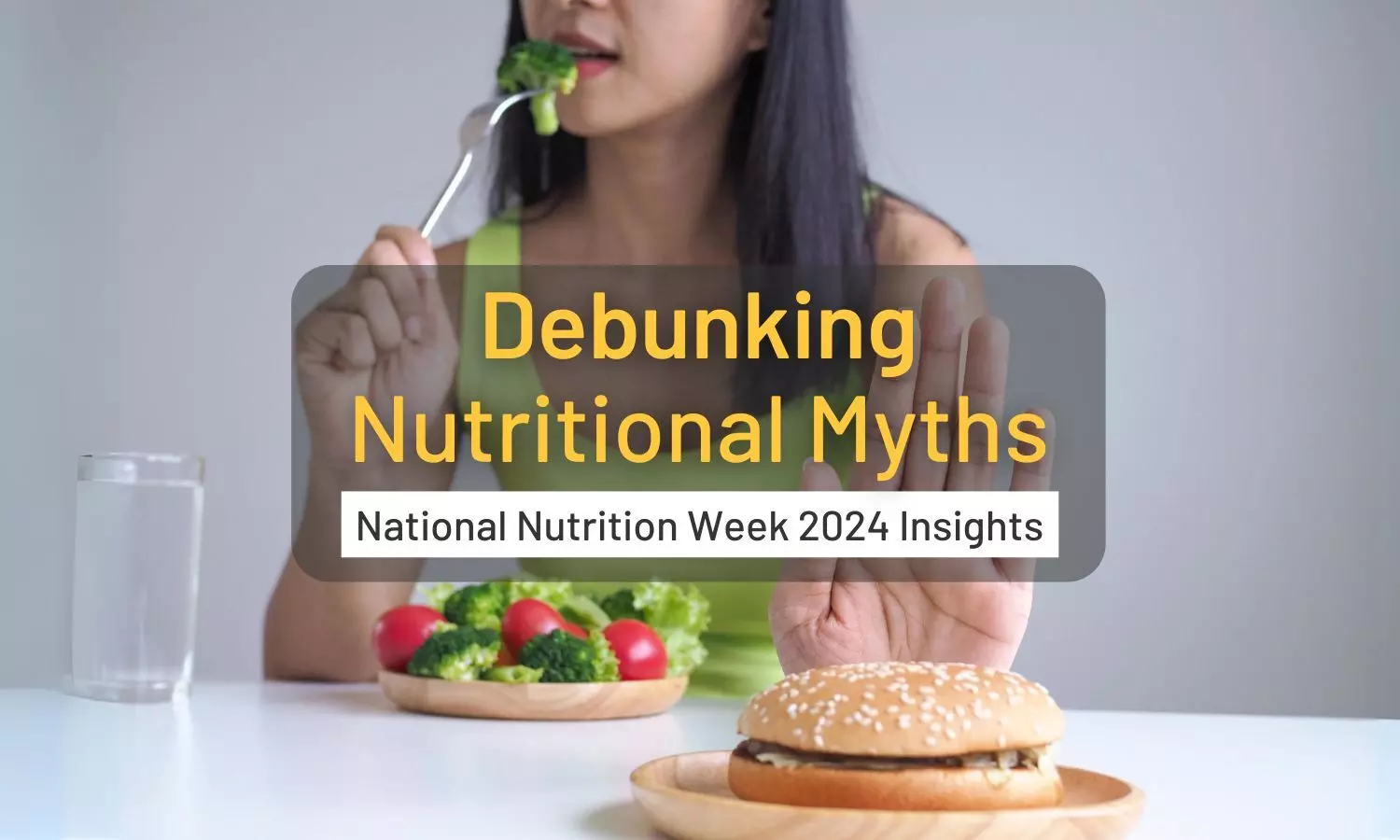Debunking Nutritional Myths: National Nutrition Week 2024 Insights
Uncover the truth behind common nutritional myths during National Nutrition Week 2024. Learn about misconceptions for healthier eating.
Debunking Nutritional Myths: National Nutrition Week 2024 Insights

National Nutrition Week 2024 is an ideal time to address and debunk common nutritional myths that can mislead individuals and affect their dietary choices. Understanding the truth behind these misconceptions is crucial for making informed decisions about nutrition and achieving optimal health.
Myth 1: Carbs Are Bad for You
One of the most persistent myths is that carbohydrates are inherently bad for health. This misconception often stems from confusion between refined and whole carbohydrates. In reality, carbohydrates are an essential macronutrient that provides energy for the body.
The Truth
- Complex Carbohydrates: Whole grains, fruits, and vegetables contain complex carbohydrates that provide sustained energy and essential nutrients. They are beneficial for overall health.
- Refined Carbohydrates: Foods like white bread and sugary snacks contain refined carbohydrates that can contribute to weight gain and other health issues. It’s important to limit these and focus on whole, unprocessed carbs.
Myth 2: All Fats Are Unhealthy
Another common myth is that all fats are detrimental to health. While it’s true that some fats are unhealthy, others are essential for maintaining good health. Differentiating between types of fats is key.
The Truth
- Healthy Fats: Unsaturated fats found in avocados, nuts, and olive oil are beneficial for heart health and can improve cholesterol levels.
- Unhealthy Fats: Trans fats and excessive saturated fats, often found in processed and fried foods, can increase the risk of cardiovascular disease. Limit these types of fats in your diet.
Myth 3: Skipping Meals Helps with Weight Loss
Skipping meals is often believed to be a quick way to lose weight. However, this approach can have adverse effects on metabolism and overall health.
The Truth
- Metabolism: Skipping meals can slow down metabolism and lead to overeating later in the day. Regular, balanced meals help maintain steady energy levels and support metabolic health.
- Nutrient Intake: Missing meals can result in nutrient deficiencies, as you may not get the necessary vitamins and minerals needed for optimal health. Consuming well-balanced meals ensures you meet your nutritional needs.
Myth 4: Supplements Can Replace a Healthy Diet
There is a belief that dietary supplements can substitute for a nutritious diet. While supplements can be beneficial in certain cases, they should not replace a well-rounded diet.
The Truth
- Whole Foods: Whole foods provide a range of nutrients, including fiber, vitamins, and minerals, that supplements cannot fully replicate. A varied diet is the best way to meet your nutritional needs.
- Supplement Use: Supplements should be used to complement, not replace, a healthy diet. Consult with a healthcare provider before starting any new supplements.
Myth 5: Eating Late at Night Causes Weight Gain
Many believe that eating late at night leads to weight gain. However, the timing of meals is less important than the overall quality and quantity of food consumed.
The Truth
- Total Caloric Intake: Weight gain is primarily influenced by overall caloric intake and expenditure, not meal timing. Eating a balanced diet and maintaining a healthy lifestyle are more effective for weight management.
- Balanced Meals: It’s important to focus on the quality of your meals rather than the timing. Choose nutritious foods and manage portion sizes to support a healthy weight.
Myth 6: Detox Diets Are Necessary for Cleansing
Detox diets are often promoted as a way to cleanse the body and improve health. However, the body has its own natural detoxification systems.
The Truth
- Natural Detoxification: The liver, kidneys, and digestive system are capable of effectively detoxifying the body. A balanced diet with plenty of fruits, vegetables, and water supports these natural processes.
- Healthy Eating: Instead of following restrictive detox diets, focus on maintaining a nutritious, well-rounded diet that supports overall health and wellness.
Myth 7: Gluten-Free Diets Are Healthier for Everyone
Gluten-free diets are often perceived as healthier, but they are only necessary for individuals with celiac disease or gluten sensitivity.
The Truth
- Gluten Sensitivity: For those with celiac disease or gluten intolerance, a gluten-free diet is essential for avoiding adverse health effects. However, for most people, gluten is not harmful.
- Balanced Diet: A balanced diet that includes whole grains, whether gluten-containing or not, is important for overall health. Opting for gluten-free products doesn’t automatically make a diet healthier.
National Nutrition Week 2024 offers a prime chance to debunk common nutritional myths and enhance your understanding of healthy eating. By clarifying these misconceptions, you can make informed dietary choices that support your health and wellness goals. Use this week to share accurate information with others and stay committed to evidence-based practices for a healthier lifestyle. Empower yourself with knowledge, challenge outdated beliefs, and embrace a diet that truly benefits your well-being. Take advantage of National Nutrition Week to foster a deeper, more accurate understanding of nutrition and its role in achieving optimal health.

